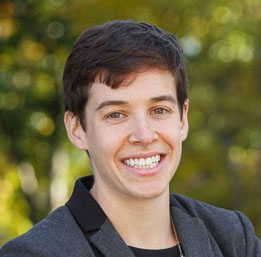9/11 Military Commission Judge Rejects Unlawful Influence Claim
On Friday, the judge United States v. Khalid Shaikh Mohammad et al. (i.e., the 9/11 military commission), Col. Keith Parrella, rejected a defense motion to dismiss the case on the grounds of unlawful influence on the part of former defense secretary James Mattis and former Defense Department Acting General Counsel William Castle.
On Friday, the judge United States v. Khalid Shaikh Mohammad et al. (i.e., the 9/11 military commission), Col. Keith Parrella, rejected a defense motion to dismiss the case on the grounds of unlawful influence on the part of former defense secretary James Mattis and former Defense Department Acting General Counsel William Castle. Defendant Ammar al Baluchi alleged that the firing of former military commissions Convening Authority Harvey Rishikof and legal adviser Gary Brown last February constituted unlawful influence by the Defense Department leadership because Rishikof and Brown’s removal was improper retaliation for judicial and quasi-judicial acts they had taken. Specifically, the defendant asserted that Castle wanted Rishikof and Brown fired, and Mattis signed off, because the Rishikof and Brown were open to the possibility of pretrial agreements for the 9/11 defendants that would have settled the charges against them and had declined charges in another case. The government argued that the decision to fire Rishikof and Brown was instead made on account of their repeated failure to properly coordinate other actions unrelated to the agreements with the Pentagon’s Office of General Counsel and other concerned parties. (There has been extensive briefing and argument on the issue since last February, and prior Lawfare coverage can be found here, here, here, and here.)
In his ruling, Parrella recapped the procedural history and provided extensive findings of fact. Critically, he found that Castle’s recommendation to fire Rishikof was based on his assessment of Rishikof’s “professional judgment, temperament and decision-making” and not on “his performance of any judicial or quasi-judicial actions,” including discussion of any pretrial agreements. In addition, the judge found that “[t]here is no indication that any person in authority over either Mr. Rishikof or Mr. Brown at any point throughout their tenure discouraged them from exploring potential PTAs with Defense Counsel in this case.” Turning to the legal standard, Parrella noted that, in his view, “the only ‘judicial act’ forming a possible basis for a[n unlawful influence] claim in this case is discussion of potential PTAs.” Accordingly, the defense could only meet the burden of proof for a motion to dismiss by showing that “that the termination of Mr. Rishikof and/or [William] Castle was, at least in part, due to their discussion of potential PTAs with counsel for the Accused in this case” (actual unlawful influence), or by showing that there was the objective appearance of such unlawful influence (apparent unlawful influence). Based on his findings of fact, Parrella concluded that the “full evidence before the Commission demonstrates beyond reasonable doubt that there was” no actual unlawful influence. Furthermore, he found “beyond reasonable doubt that no objective, disinterested observer, fully informed of the relevant facts and circumstances, would harbor any significant doubt about the fairness of these proceedings,” so there was therefore no apparent unlawful influence either. He also concluded that there was “no reasonable likelihood that further discovery or testimony [would] produce information relevant and necessary to resolution of this matter.”
Accordingly, he denied the motion to dismiss as well as the defense’s request for additional discovery and testimony on the matter.
The next session of the 9/11 commission is scheduled for Jan. 28.



.jpg?sfvrsn=d5e57b75_7)

